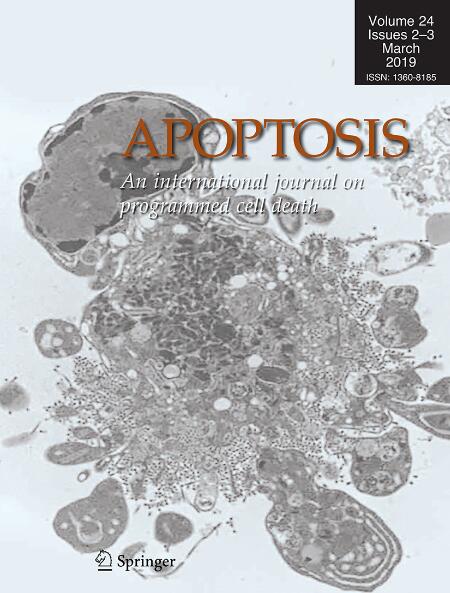Glutamine deprivation in glioblastoma stem cells triggers autophagic SIRT3 degradation to epigenetically restrict CD133 expression and stemness
Abstract
Glioblastoma multiforme (GBM) is a highly malignant brain tumor, and glioblastoma stem cells (GSCs) are the primary cause of GBM heterogeneity, invasiveness, and resistance to therapy. Sirtuin 3 (SIRT3) is mainly localized in the mitochondrial matrix and plays an important role in maintaining GSC stemness through cooperative interaction with the chaperone protein tumor necrosis factor receptor-associated protein 1 (TRAP1) to modulate mitochondrial respiration and oxidative stress. The present study aimed to further elucidate the specific mechanisms by which SIRT3 influences GSC stemness, including whether SIRT3 serves as an autophagy substrate and the mechanism of SIRT3 degradation. We first found that SIRT3 is enriched in CD133+ GSCs. Further experiments revealed that in addition to promoting mitochondrial respiration and reducing oxidative stress, SIRT3 maintains GSC stemness by epigenetically regulating CD133 expression via succinate. More importantly, we found that SIRT3 is degraded through the autophagy–lysosome pathway during GSC differentiation into GBM bulk tumor cells. GSCs are highly dependent on glutamine for survival, and in these cells, we found that glutamine deprivation triggers autophagic SIRT3 degradation to restrict CD133 expression, thereby disrupting the stemness of GSCs. Together our results reveal a novel mechanism by which SIRT3 regulates GSC stemness. We propose that glutamine restriction to trigger autophagic SIRT3 degradation offers a strategy to eliminate GSCs, which combined with other treatment methods may overcome GBM resistance to therapy as well as relapse.


 求助内容:
求助内容: 应助结果提醒方式:
应助结果提醒方式:


